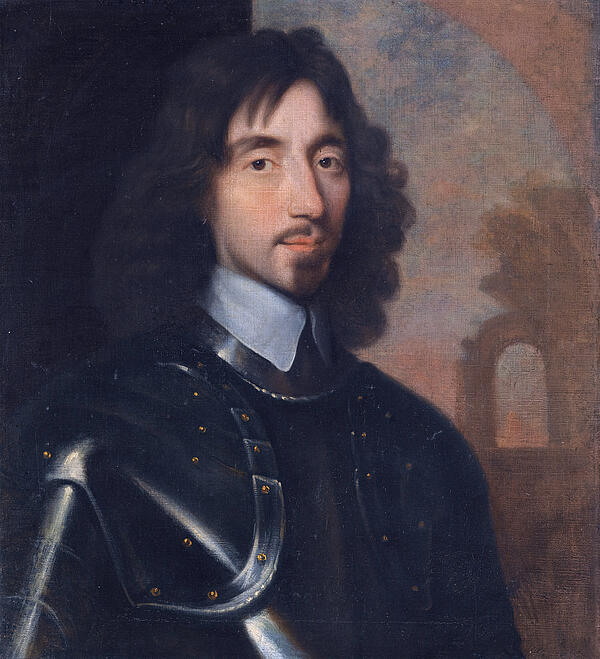Sir Thomas Fairfax
Sir Thomas Fairfax is known as being a great military commander in the English Civil War. He gained his reputation as a skilled leader after he led the New Model Army to victory at the Battle of Naseby in June 1645.
Born in 1612 in Denton-in-Wharfedale, Sir Thomas Fairfax was raised in a well-known Yorkshire family. In 1626, Fairfax began his studies at Sir John’s College, Cambridge University. Fairfax was deeply affected by the university’s Puritan philosophy, which further increased his resentment towards the king.
In 1629, Fairfax served in the Netherlands with Sir Horace Vere’s company for the Prince of Orange. After a short stay in France where he almost died of Smallpox he returned to his family’s estates in Yorkshire. In 1639, Fairfax led a troop of men to fight for King Charles I against the Scots in the Bishop’s War.

In the Second Bishop’s War the following year, Fairfax fled with the rest of the defeated army but was nevertheless knighted for his services in January 1641.
In the run up to the Civil War, Fairfax pushed for an agreement between Parliament and Crown to avoid war, but when it became obvious that a settlement was not going to be reached, he turned towards Parliament. The Fairfaxes, father and son, though serving at first under Charles I. (Thomas commanded a troop of horse, and was knighted by the king in 1640), were opposed to the arbitrary prerogative of the crown, and Sir Thomas declared that "his judgment was for the parliament as the king and kingdom's great and safest council."
Thomas Fairfax became recognised as a courageous and highly skilled leader. Under his leadership, the Parliamentary forces took Wakefield and Leeds. Fairfax was popular with his men, but could be ruthless when circumstances demanded it. During the Second Civil War he ordered two of the captured Royalist defenders of Colchester to be shot, and in 1649 ordered the execution of a number of army mutineers.
After earning national fame for his performance in battle, Fairfax was appointed Captain-General of the New Model Army in February 1645.
Called “the rebels’ new brutish general” by the king, Fairfax helped secure many victories for the king. The most significant was at Naseby.
In 1650 Fairfax gave up his commission. During his retirement Fairfax wrote a collection of verses which he left to the Bodleian at Oxford.
Fairfax died on 12 November 1671, aged 59.
See also: Robert Devereux, Earl of Essex
MLA Citation/Reference
"Sir Thomas Fairfax". HistoryLearning.com. 2025. Web.
